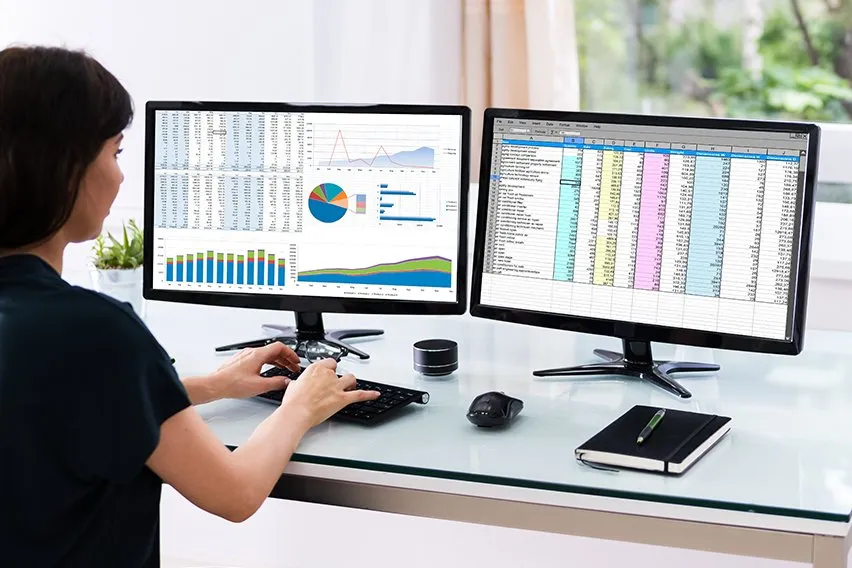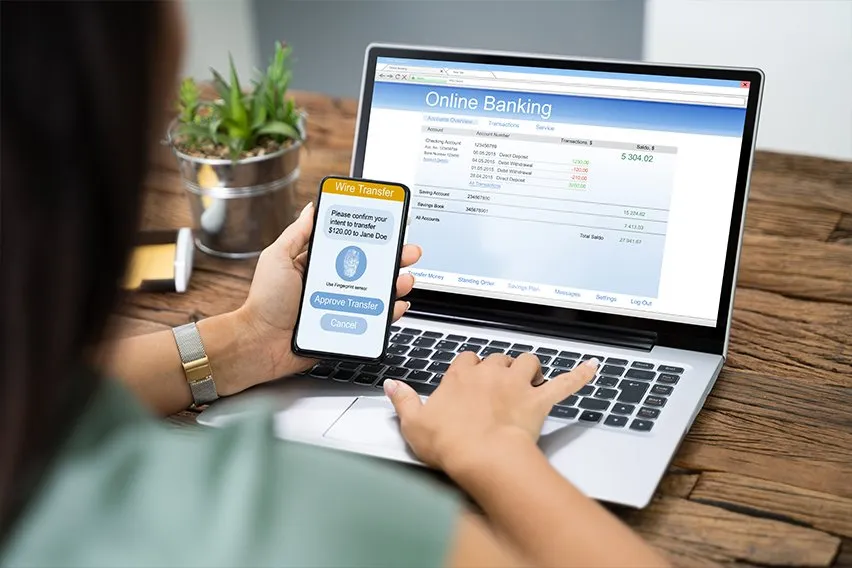5 Free Online Bookkeeping Courses with Certificates (2024 Edition)

A great way to start your bookkeeping career is by taking free online bookkeeping courses with certificates offered upon completion.
Online bookkeeping courses can teach you the basics of how to record and report financial information for businesses. These courses can also give you confidence by allowing you to test your skills and gain hands-on experience.
In this post, we’ll review 5 free online bookkeeping courses, most of which offer a certificate upon completion. We’ll also help you navigate through questions commonly asked when getting started with bookkeeping.
Here’s What We’ll Cover:
- OpenLearn University
- Small Business Administration (SBA)
- Alison
- AccountingCoach
- edX Courses
- Frequently Asked Questions
- FreshBooks Accounting Partner Program
- Wrapping Up
1. OpenLearn University
OpenLearn University offers a variety of free finance courses, including a free 8-hour long course called Introduction to Bookkeeping and Accounting. This course helps you understand the fundamentals of double-entry bookkeeping and how it relates to the balance sheet and the profit and loss statement. Other topics that OpenLearn covers include managerial accounting, how to do accounting for organizations,.and essential numerical skills that you’ll need as an accountant or bookkeeper.
OpenLearn University offers interactives, videos, and text for all types of learners. Their accounting courses range from 2-20 hours and are grouped into level 1, level 2, and level 3 for your convenience.
With an OpenLearn profile, you can easily track progress, take quizzes, and earn a statement of participation or a badge of completion.

2. Small Business Administration (SBA)
The Small Business Administration offers a free and quick 30-minute training course introducing you to accounting. Upon completion, you get a free PDF course completion certificate with your name on it from the SBA.
Some topics SBA covers include cash flow statements, income statements, and bookkeeping basics such as keeping accurate books.
3. Alison
Alison hosts a variety of free accounting and bookkeeping video training courses, including courses on sales and purchases, basics of accounting, payroll basics, and software.
Although it’s not free to get a digital certificate (the cost is roughly $25), it is free to share your learner record or learner achievement verification as a way of demonstrating that you’ve completed the course and passed the assessment. You can show off the completed course on LinkedIn.
A limitation of the free version of Alison is that you’re exposed to ads, but you can upgrade for less than $100 to have all ads removed.
4. AccountingCoach
AccountingCoach offers self-paced courses to help you learn bookkeeping fundamentals and to grasp key concepts better. The site is run by Harold Averkamp, who was an accounting instructor at the university. The site is known for the way Harold simplifies the explanation of complex topics.
AccountingCoach also has a useful search bar to look for specific topics. Although they do have two paid options, they also offer free lessons.
The free option gives you access to the text version of topic explanations and a handy quiz to test what you’ve just learned.
Upgrading your plan for a one-time fee of either $49 or $99 gives you lifetime access to 27 training videos on bookkeeping basics and financial statements. You also get access to visual tutorials.
A negative aspect about AccountingCoach is that although the courses are free, you do have to pay a one-time fee of $99 for the pro plus membership to get all 10 certificates of completion.
The 10 certifications they offer are:
- Debits and Credits
- Adjusting Entries
- Financial Statements
- Balance Sheet
- Income Statement
- Cash Flow Statement
- Working Capital and Liquidity
- Financial Ratios
- Bank Reconciliation
- Payroll Accounting
5. edX Courses
The Association of Chartered Certified Accountants (ACCA) offers free courses on edX. One example is the free Introduction To Bookkeeping introductory course that takes roughly 30-48 hours to complete.
They offer a suggested timeline to pace you, but ultimately, it’s flexible and you can move due dates around to better fit your schedule. Although it is self-paced, courses do end at specific dates, which means that the course will no longer have an active discussion board, some links may no longer work, and you can no longer upgrade to get a certificate.
EdX’s Introduction To Bookkeeping will help you feel more confident about your knowledge surrounding double-entry accounting. Some specific topics covered in the syllabus include the trial balance, types of business transactions, and ledger accounts.
Once you’re done with the introductory level course, you can move on to the free intermediate bookkeeping course covering topics such as reconciling control accounts and the cashbook.
ACCA also offers additional quizzes for free to self-assess your underlying math skills, which are critical for accounting. They also offer free quizzes to help you self-assess your general knowledge and prepare for the ACCA exam.
Unfortunately, to get a certificate for this learning program, you will need to become an ACCA student, which costs roughly $150 per year. You’ll also have to pay the relevant test fee, which is about $100. Some tests are held in person while others are computer-based.

Frequently Asked Questions
Are you thinking of getting into bookkeeping or starting your own accounting business from scratch? Here are some common questions new bookkeepers ask when first getting started.
What are basic bookkeeping skills?
Freelancers, business owners, and those aspiring for a career in bookkeeping can benefit from understanding basic bookkeeping skills. These skills include:
- How to record financial transactions
- How to use common accounting software
- How to create sales invoices and purchase invoices
- How to prepare balance sheets
- Understanding sales tax and value-added tax
- How to do payroll
What do online bookkeeping classes include?
Bookkeeping classes cover a wide range of topics, from understanding the different types of financial statements to knowing how to record financial transactions. You’ll also find a variety of courses on software. This can range from Excel basics to more sophisticated accounting software programs that businesses use today, such as FreshBooks.
These classes are usually organized into cohesive programs followed by short quizzes to test your knowledge. Some learning platforms deliver the classes through videos or text whereas others offer a more hands-on experience, including having you work on sample balance sheets and prepare trial balances.
Also Read: How to Use Excel for Accounting
Is bookkeeping right for you?
Every business can benefit from having a bookkeeping professional or someone who understands bookkeeping fundamentals. Learning bookkeeping is a good idea for anyone with a business, even if your primary goal is not becoming a professional bookkeeper.
If your career goals include offering bookkeeping services either for yourself or another firm, bookkeeping can be a rewarding career with many flexible options. Some benefits of the career path include plenty of remote work possibilities and the ability to work in a wide range of industries.
Is a bookkeeping certificate worth it?
A bookkeeping certificate acts as proof that you understand basic accounting and bookkeeping concepts. This is good for new bookkeepers who don’t have much real-world experience nor a degree to back up their hours of study. Getting additional bookkeeping certificates can also help those who already have bookkeeping experience because it can serve as proof that you’re keeping up with best practices and the newest technology.
Certificates on your resume can help show off your expertise and boost your confidence when looking for work.
Additionally, free courses and certifications are a good place to get started as you eventually aim to tackle some of the more recognized certifications. One of the more recognized certifications includes the bookkeeping certification by the National Association of Certified Public Bookkeepers, to become a certified bookkeeper. However, to become certified by the National Association of Certified Public Bookkeepers, you need at least two years of experience.
FreshBooks Accounting Partner Program
FreshBooks is a commonly used software among freelancers and small business owners.
Learning accounting software like FreshBooks is a must nowadays for accounting professionals. This is because many business owners have traded spreadsheets for accounting software as a way to make their lives easier.
If you’re a bookkeeper or accountant new to FreshBooks, joining the free Partner Program is the fastest way to learn the software and get access to the FreshBooks Accounting Certification. Learning to use FreshBooks enables you to reach more prospective clients and grow your firm.
When you join the Program, you get access to ongoing skills training, tools, resources, dedicated support, and personalized education. You can also be added to the Partner Directory where you and FreshBooks customers can be matched up.
Wrapping Up
Free online bookkeeping courses that offer certificates upon completion are a great way to get started with a bookkeeping career, boost your confidence, and enhance your resume and expertise.
Once you’re a certified bookkeeper or accountant, you can grow your practice, learn new skills, and become FreshBooks certified by becoming a FreshBooks Accounting Partner for free.
More Resources on Small Business Accounting
RELATED ARTICLES
 Levered Free Cash Flow (LFCF): Definition & Calculation
Levered Free Cash Flow (LFCF): Definition & Calculation Marginal Revenue: What It Is & How to Calculate It?
Marginal Revenue: What It Is & How to Calculate It? Best Desktop Payroll Software for Small Business
Best Desktop Payroll Software for Small Business Levered vs. Unlevered Free Cash Flow: Top 7 Differences
Levered vs. Unlevered Free Cash Flow: Top 7 Differences Account Balance: Definition, Types, and Examples
Account Balance: Definition, Types, and Examples What is Capital Budgeting? – Definition, Process & Techniques
What is Capital Budgeting? – Definition, Process & Techniques